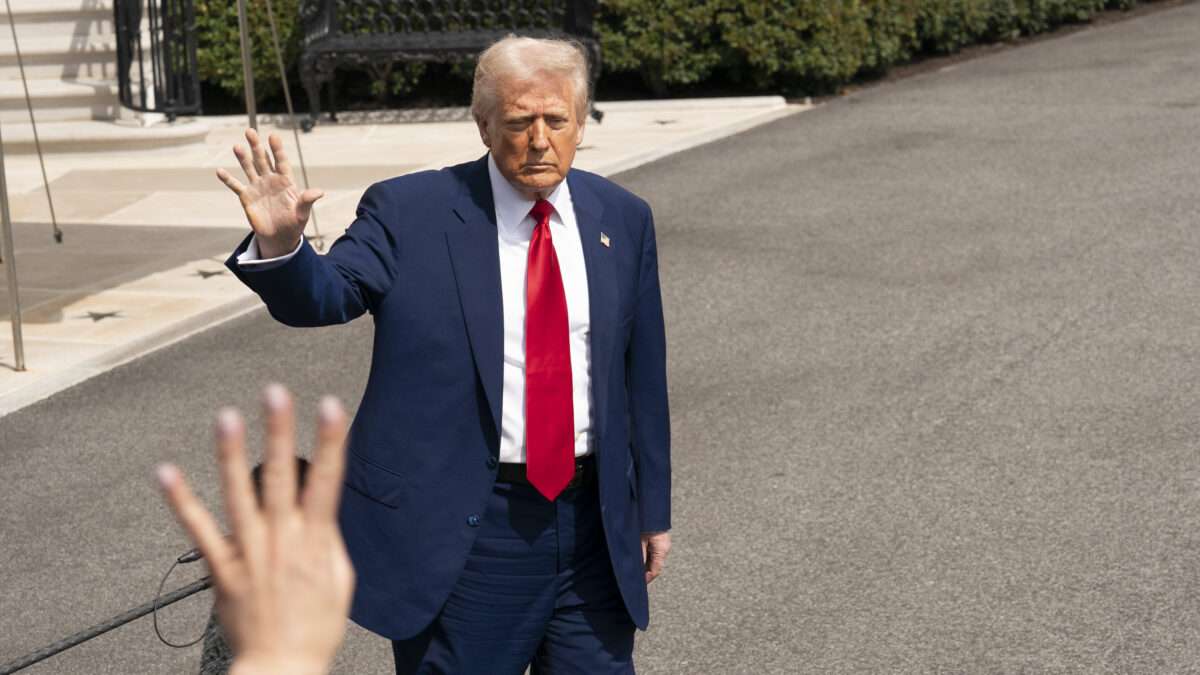Cheap Chinese goods are about to get pricier.
On Wednesday, President Donald Trump announced the elimination of the de minimis exemption for low-value ($800 and cheaper) Chinese imports. In addition to a 34 percent "reciprocal tariff" on Chinese imports and the 10 percent duty applied to all imports per Trump's executive order on regulating imports, the president signed another order ensuring that no Chinese imports escape tariffs. With de minimis eliminated, Americans will have to pay more as direct-to-consumer businesses are forced to pay 30 percent duties beginning May 2.
Trump originally eliminated the de minimis exemption for Chinese imports with an executive order signed February 1, to go into effect on February 4. This executive order was amended on February 5 (via another executive order), one day after the United States Postal Service announced a temporary suspension of service for inbound Chinese parcels. Trump also threatened Canada and Mexico with the elimination of de minimis on February 1, but these executive orders were paused before they could go into effect.
"Liberation Day" included the elimination of the de minimis exemption for Chinese-origin goods. Starting May 2, low-value Chinese imports will be subjected to a 30 percent duty or $25 per postal item containing goods, which will increase to $50 per item on June 1. The 30 percent duty is 20 percentage points greater than the one proposed in February, but lower than the combined 54 percent duty that goes into effect April 9 for Chinese imports exceeding $800 (the 20 percent duty per March's executive order plus the 34 percent reciprocal tariff).
As the price of imported Chinese goods rises, consumers will get commensurately less value from them. If imports are unable to reach American consumers, they will get even less benefit. Trump has established a track record of threatening countries with protectionist measures that are withdrawn after some purported policy aim has been achieved—the de minimis exemption may never actually be eliminated or may only be so for a brief period, as happened in February.
However, if the de minimis exemption on Chinese goods is eliminated, it is unclear how Customs and Border Protection (CBP) plans to process tens of billions of dollars of low-value Chinese packages, all of which will now require formal entry. John Pickel, senior director of international supply chain policy for the National Foreign Trade Council, a trade association that promotes free trade and international investment, tells Reason that he is unsure how carriers will calculate and collect the 30 percent duty owed to CBP on Chinese goods. Pickel speculates that "the flat duty amount [is] a response to the lack of customs processing infrastructure," but that a $25 or $50 "flat duty for the average $32 low value shipment…is also prohibitive." Pickel describes both options as untenable.
The post Trump Is Making Affordable Goods Expensive appeared first on Reason.com.











 Bengali (Bangladesh) ·
Bengali (Bangladesh) ·  English (United States) ·
English (United States) ·